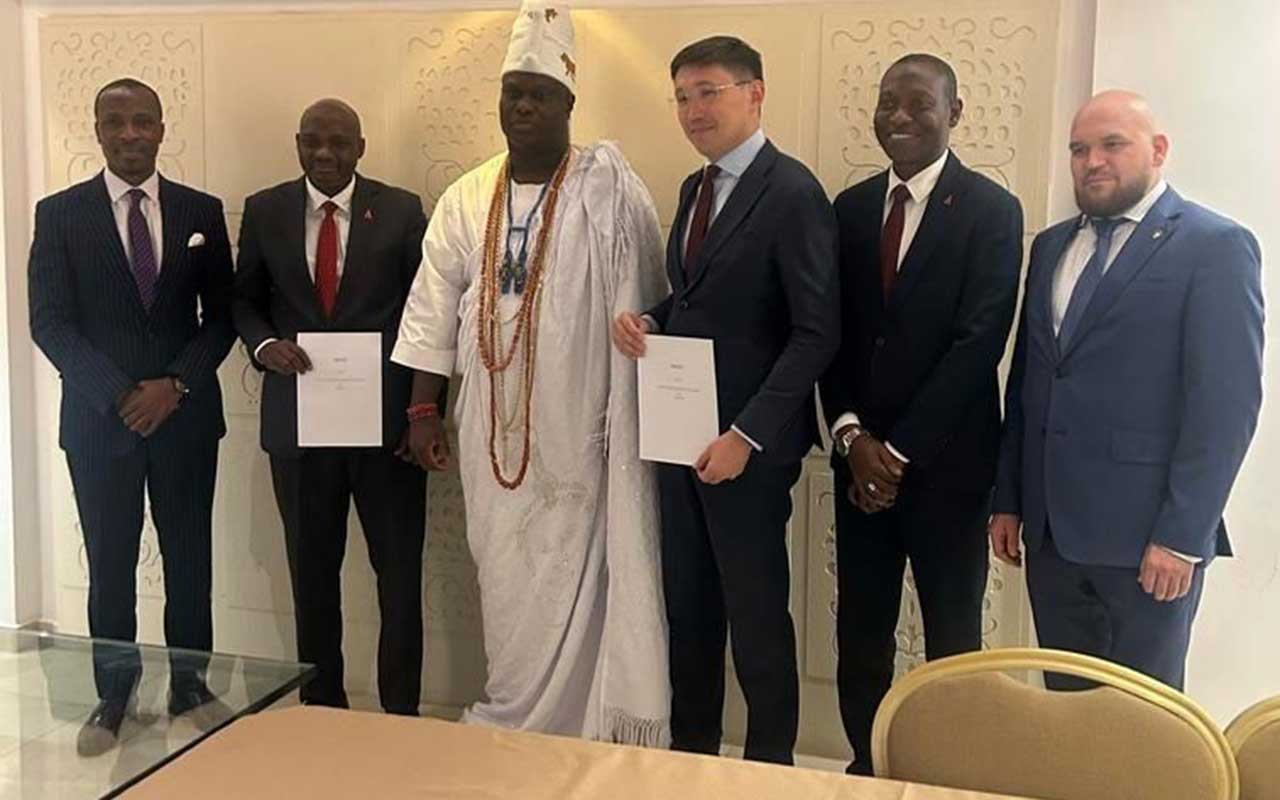
The foremost traditional ruler in Yorubaland lauded the TAJBank’s management on the collaboration during the signing of the memorandum of understanding (MoU) in Abuja, which formalises the framework between the two partners to leverage the opportunities of non-interest banking for the benefit of Nigerians, Asians and their businesses.
The royal father, who recalled TAJBank’s remarkable efforts to deepen financial inclusion through the non-interest banking model in the country over the past few years, said:
“I believe this MoU between TAJBank and AIFC is another initiative that I strongly feel will foster export ties between Nigeria and Kazakhstan.
“We look forward to better international trade involving cocoa and other commodities as I hear that you have the best chocolates in Kazakhstan”, Oba Ogunwusi added.
The MOU aims to promote and develop non-interest banking products and services within Nigeria, adhering to Islamic financial principles, streamlining and securing the management of export proceeds, particularly of agricultural commodities such as cocoa, exploring innovative financial instruments and mechanisms to strengthen trade finance and provide robust support to Nigerian exporters.
In addition, the deal seeks to fortify trade relationships between Nigeria and Kazakhstan, as well as other Central Asian countries, by identifying and pursuing opportunities for joint ventures, strategic investments, and enhanced trade financing to drive economic cooperation.
TAJBank’s Founder/Managing Director, Hamid Joda, enthused: “This is another landmark deal in our sustained drive to demonstrate to Nigerians that TAJBank is committed to supporting their businesses irrespective of the location.”
AIFC’s Director, Yernar Zhanadil, said: “Your Majesty, the Islamic market in Kazakhstan is untapped; the market has over eight million users. We can issue Ijara or Sukuk using Nigeria’s model. It has so much potential. With Ooni’s involvement and TAJBank, I am even more aware of the immense benefits of the MoU for bank customers and the economies of the two countries.”






